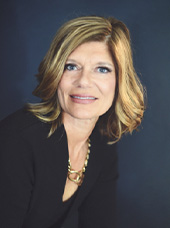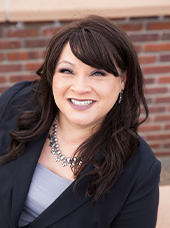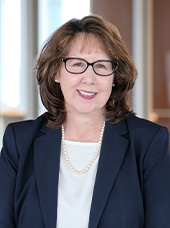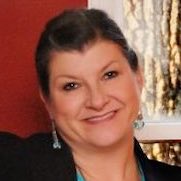12 minutes
How to help empower women throughout their credit union leadership journeys
Significant obstacles can impede a woman’s journey to leadership, notably the first critical step up to manager, often called the “broken rung.” According to the McKinsey Report, for every 100 men promoted from entry-level to manager, only 87 women achieve the same advancement, with the numbers even lower for women of color at 73. This disparity highlights a crucial barrier that impedes equity and affects the health and diversity of business leadership. Despite these challenges, women in the credit union industry exhibit remarkable resilience, striving to overcome this hurdle and reshape the leadership landscape.
Personal Encounters and Impacts
Reva Rao, chief lending officer at $4.9 billion Travis Credit Union, Vacaville, California, shares her firsthand experiences with the “broken rung,” a systemic issue that underscores the challenges women face in ascending to first-level management roles compared to their male counterparts. “Early in my career, I did not face this phenomenon, but as I progressed professionally, its effects became evident,” Rao recounts.
Rao observed that traditional measures of dedication, like staying late at the office, presented challenges, especially for those balancing family duties. “In 2008, as my career progressed, the norm was often to work late, which was difficult for someone trying to balance family and work,” she recalls. “I addressed this by keeping my leaders informed about my progress and results and working evenings after my children slept. This allowed me to stay on top of my tasks and ensure my work quality remained high, thus continuing to add value to my team outside of regular hours.”
Over time, Rao witnessed a cultural shift towards valuing work-life balance and recognizing employees as whole people beyond their professional roles. “There’s now a greater appreciation for flexible work schedules, which has emerged stronger post-pandemic. These changes have improved performance evaluation, benefiting working parents and promoting fairness in career advancement,” Rao notes.
Rao also points to the success of broadly accepted industry initiatives such as formal leadership training, diversity, equity, and inclusion initiatives, and mentorship programs within credit unions. “These initiatives are pivotal in creating access and opportunities for all, regardless of gender,” she adds, as do effective strategies like targeted recruitment and inclusive governance training, which bolster diverse representation and enrich decision-making.

Leveling the Playing Field
CUES member Carrie Langgard, president/CEO of $665 million Sooper Credit Union, Arvada, Colorado, reflects on the obstacles women face in rising through the ranks. “Statistics presented in the McKinsey Report reveal a troubling trend that not only holds women back from managerial roles but also accentuates the hurdles for women of color,” she says.
Langgard shares a defining moment in her career when a less-qualified male colleague from outside the organization was chosen over her for a promotion: “This decision made me question my visibility and value within the organization,” she shares. In response, Langgard strategically increased her involvement in high-visibility projects and pursued leadership training to bolster her qualifications and assert her readiness for advancement.
Langgard also notes the cultural nuances of her Chinese heritage, where strength is traditionally exhibited through resilience and quiet determination.
“Drawing from the strong Chinese women in my life, I have embraced these traits while also learning to assert myself more forcefully to overcome both internal and external biases,” Langgard says. She shares wisdom imparted by her late grandmother, citing the proverb, “Be like the tiger crouching in tall grass—patient and strategic, emerging only at the right moment.” This philosophy has guided her, embodying a powerful blend of visibility and discretion that has proven essential in her career advancement.
Building on Foundations for Women’s Leadership
Building on the advocacy and groundwork laid by their predecessors, today’s credit union leaders continue to push for environments that support women’s leadership pathways. Their efforts are pivotal as they craft a future where gender does not dictate professional advancement.
Amey R. Sgrignoli, CCE, is president/CEO of $918 million Belco Community Credit Union, Harrisburg, Pennsylvania. Although her career advancement was not personally impeded by the broken rung, Sgrignoli recognizes its broad impact on women across the industry. She has also observed the persistent lag in women’s promotions to managerial positions, echoing the gender disparities highlighted by the McKinsey Report.
“At Belco, we’ve responded to these challenges with proactive strategies to foster advancement, ensuring that career growth is accessible for everyone without sacrificing personal or family commitments. In today’s environment, we feel that gender bias should be a thing of the past and all employees should have the opportunities they earn through their performance,” she says.
Sgrignoli notes that Belco Community CU continues to support a hybrid workplace that allows its workforce flexibility to better manage family commitments while meeting the expectations of their role. “By emphasizing diversity, work-life balance and clear behavioral standards, we ensure all motivated employees can engage in activities like creating personalized development plans and building their professional brands to achieve career dreams,” she explains. “Everyone is given access so that no one is overlooked.”
Since starting her career in 1995 and rising through the ranks at Belco Community CU, Sgrignoli has been pivotal in developing programs that nurture young professionals. “We emphasize informal networking and formal education to create a nurturing environment where potential can flourish, irrespective of gender,” she says.
“Informal networking occurs when young professionals actively participate in our local credit union chapter, state association and leadership development programs. These platforms allow them to connect with peers and seasoned industry professionals, serving as an invaluable sounding board for developing and refining ideas, thinking differently and introducing fresh perspectives,” Sgrignoli adds. “Complementing these informal activities with formal education, such as completing degree programs, earning industry-specific certifications, and acquiring new skills, is crucial.”

In 2016, Sgrignoli led the launch of a Pennsylvania chapter of the Global Women’s Leadership Network. “In partnership with $1.6 billion Vizo (Financial Corporate Credit Union, Greensboro, North Carolina, which also has an office in Pennsylvania) and the CrossStates Credit Union Association, we created a community through networking events, motivational talks, and workshops. These gatherings offer a safe space for discussing challenges like managing difficult workplace relationships or negotiating salaries while expanding professional networks,” she adds.
CUES member Leigh Brady, CSE, president/CEO of $54 billion State Employees’ Credit Union, Raleigh, North Carolina, also highlights the significance of partnerships in extending these efforts. “Through associations like the African-American Credit Union Coalition, National Association of Latino Credit Unions and Professionals, CU Pride, and the Global Women’s Leadership Network, we’ve enhanced inclusivity and growth opportunities within our cooperatives,” Brady says. She adds that the Global Women’s Leadership Network has been vital in connecting and empowering women across the industry, providing a platform for sharing best practices, gaining mentorship and accessing development resources critical for career advancement.
Brady stresses that as leaders, “we’ve got the unique opportunity to leverage multiple support associations and groups to make a difference for our future female leaders.”
Empowerment Through Mentorship and Organizational Support
According to the Credit Union National Association (now America’s Credit Unions), 51% of U.S. credit union CEOs are women, compared to just 4% in the banking sector. However, the disparity becomes pronounced at larger institutions, where women lead only 13% of credit unions with assets between $1 billion and $5 billion, compared to only 2% at similar-sized banks. In Canada, the gender parity situation is similar: According to a 2023 report, fewer than 20% of banks—only two—had female chief executive officers, while 38% of credit unions were led by female CEOs.
So, Rao notes, while credit unions are leading the way in gender equality, there is still room to grow, especially in larger organizations.
Rao emphasizes the critical role that mentoring and leadership programs play in addition to diversity initiatives in nurturing career advancement and fostering an inclusive environment. “These initiatives not only support but actively encourage women to pursue leadership roles, effectively dismantling traditional barriers,” she explains. Leadership training is vital as it increases sensitivity towards diverse employee needs, which promotes a more inclusive workplace culture.
Additionally, Rao stresses the importance of policies supporting women’s recruitment, retention and advancement. Such policies often include flexible work schedules, extended PTO, comprehensive parental leave, remote work options and transparent promotion processes. These measures help balance professional and personal responsibilities while ensuring fairness in career advancement opportunities.
“Implementing diversity and inclusion initiatives is crucial for creating a culture of belonging that promotes gender equality,” Rao adds. She advocates for clear promotion frameworks that outline criteria for advancement, ensuring all employees have equal opportunities to showcase their skills and qualifications.
To further support this environment, Rao recommends rigorous tracking of employee outcomes, including hiring, promotions and attrition, to identify disparities and facilitate improvements in career progression. She highlights the success of many credit unions, including her own, in adopting transparent promotion processes that enhance fairness and equality.
“Flexibility is a highly valued employee benefit across all genders,” says Sgrignoli. However, for flexibility to truly benefit employees, it must be coupled with a robust framework of guidance and mentorship, she adds. At Belco Community CU, this framework includes sponsorship, development plans and extensive internal and external training that prepares all employees—particularly women—for leadership roles.
Belco Community CU’s training initiatives include internal sessions on leadership, financial management, as well as diversity and inclusion. “These sessions enhance employee capabilities and prepare them for upward mobility,” says Sgrignoli. The credit union also supports external learning through industry conferences and partnerships with institutions that offer courses and professional certifications, aiding in comprehensive career development.

Langgard’s mentorship experience powerfully demonstrates the profound impact of mentorship. After relocating from Canada to the U.S. and commencing her tenure at $417 Zing Credit Union (formerly Denver Community Credit Union), she worked under the guidance of then CEO and former CUES member Carla Hedrick, a pivotal female leader who reshaped her views on leadership potential. “Seeing a woman in such a high leadership position was startling and incredibly inspiring,” Langgard recalls. Hedrick’s mentorship was crucial in helping Langgard overcome early career challenges and setting the stage for future leadership roles.
As her career progressed, Langgard ascended to the role of CFO at Colorado United Credit Union, where she benefited from the mentorship of CUES member Betsy Guerrero, now the CFO at $326 million Red Rocks Credit Union in Littleton, Colorado. This enduring relationship enabled her to adapt to new responsibilities and navigate her career with confidence.
“The relationship with Betsy was crucial in managing imposter syndrome, bolstering my confidence and preparing me for future challenges,” Langgard explains. She highlights moments like preparing for a major presentation and making strategic decisions, where Guerrero’s support was pivotal.
“I encourage aspiring women in the industry to seek female mentors to foster growth, boost confidence and [help] navigate professional challenges,” Langgard advises. She also notes the reciprocal benefits of mentorship, where mentors gain fresh perspectives and strengthen their leadership skills.
Structured training programs are also vital at Sooper CU, with a dedicated trainer developing tailored programs that prepare the team for future leadership roles. These programs have been instrumental in cultivating the next generation of credit union leaders and fostering connections between mentors and mentees.
Take Control of Your Career Development
In order to progress in a demanding career journey, women will need ambition, a strategic approach, resilience—and sometimes, a thick skin.
Visibility and Proactive Engagement: Sgrignoli emphasizes the importance of visibility. “Actively seek out projects that align with your career goals and speak up about your aspirations. Engage consistently in your professional development.” She shares how taking on strategic projects in her early years significantly propelled her career forward, demonstrating the value of proactive engagement.
Strategic Networking and Self-Advocacy: Similarly, Rao underscores the necessity of self-advocacy and strategic networking. “Increase your visibility within the organization by building strong relationships and demonstrating your skills and career intentions,” she advises.
Assertiveness in Career Progression: Langgard emphasizes the importance of clarity and assertiveness. “Being transparent about my ambitions and seeking relevant opportunities were pivotal. Each challenge was a chance to enhance my abilities and prepare for future roles.” This assertiveness is crucial for effective career progression.

Handling Setbacks Constructively: Langgard encourages viewing rejection as a learning opportunity. “Gather feedback to understand deficiencies and prepare for future opportunities,” she says.
Rao also highlights using setbacks as opportunities to grow and refine skills, thus strengthening your career trajectory. She adds, “If you miss out on a promotion, understand the reasons behind the decision. Seek advice from your leaders and ask for insight into areas for improvement, which helped me to progress in my career.”
Work Ethic and Adaptability: Brady highlights the importance of a robust work ethic and adaptability. “Embrace all learning opportunities and don’t shy away from mistakes, as they often lead to better understanding and leadership growth,” Brady advises.
She illustrates adaptability with a personal story: “Earlier in my career, while working in our audit department and raising two young children, I was comfortable in my role. However, our CEO challenged me to set up a secondary marketing department on a tight schedule. Although it would have been easier to decline due to my family commitments, accepting the challenge was crucial for my growth within the company. Making such choices can be difficult, particularly with a young family, as they often require sacrifices from everyone in the family unit.”
Rao concurs, noting the importance of patience and ongoing training. “Recognize that development is a continuous journey. Immediate results aren’t always expected as it takes time to acquire new skills, build confidence and establish oneself in leadership roles.”
Credit unions are actively addressing barriers to gender equality by implementing flexible work policies, transparent promotion processes, and comprehensive mentorship and development programs. These efforts are paving the way for sustainable gender equality across the industry. The journey to overcome the broken rung is ongoing, but with targeted strategies and supportive policies, credit unions are setting a benchmark in fostering workplace equality. cues icon
Owner of Fab Prose & Professional Writing, Stephanie Schwenn Sebring assists credit unions, industry suppliers and any company wanting great content and a clear brand voice. Follow her on Twitter/X @fabprose.






